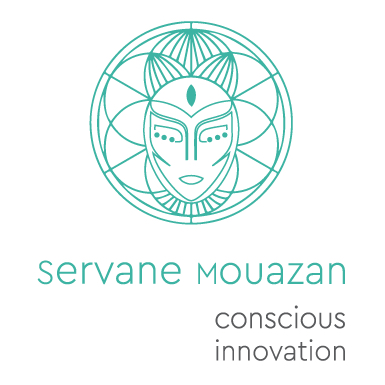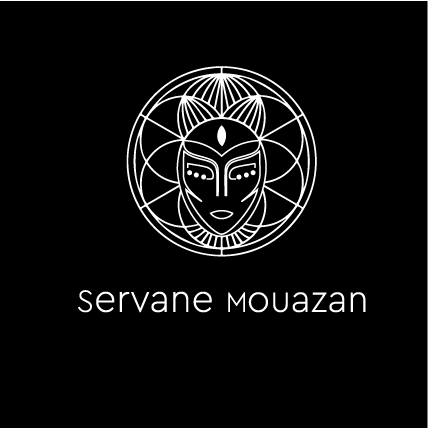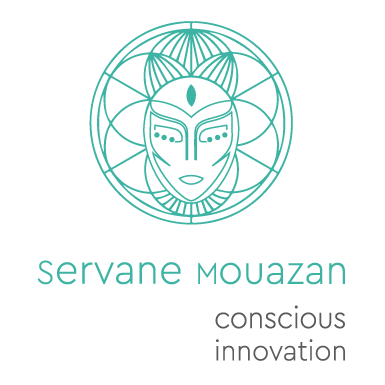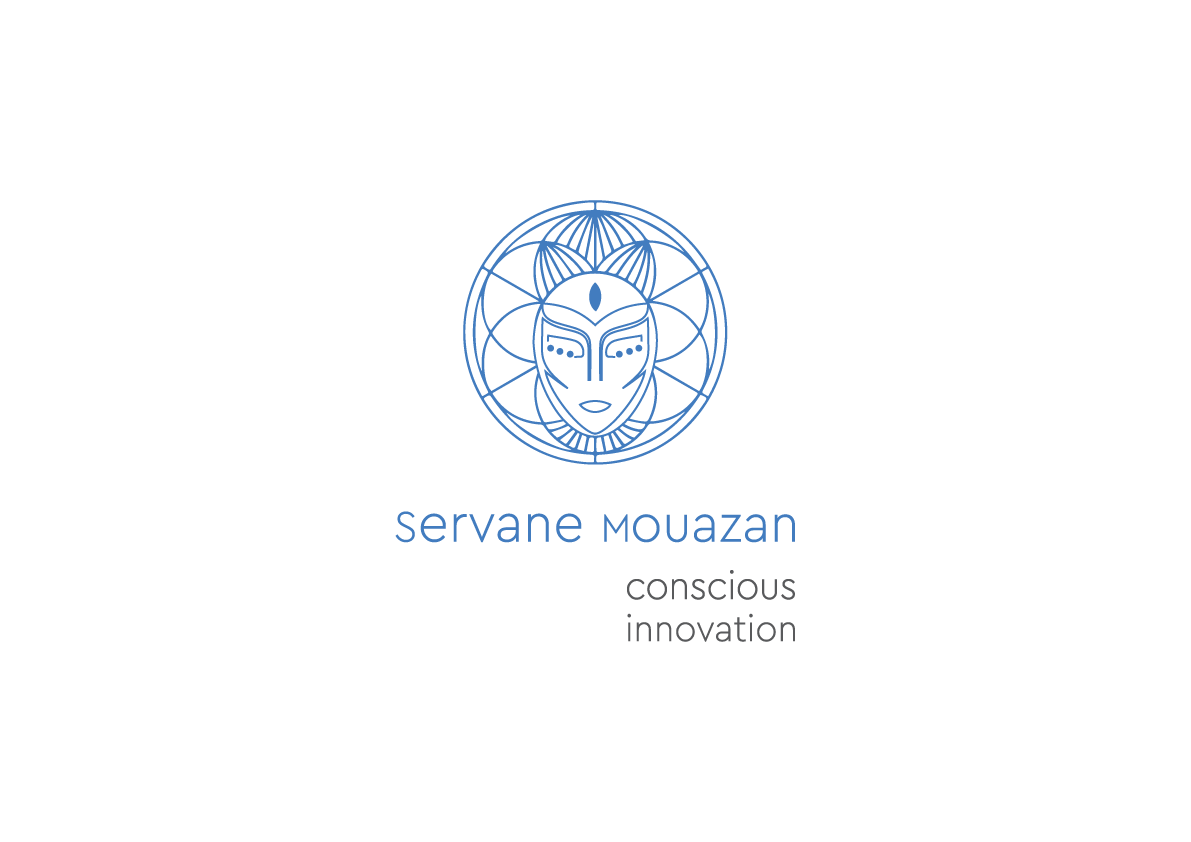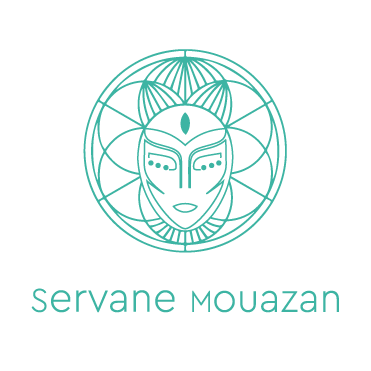How to Rethink Finance to Architect a Positive Future with Ana Yang
In this episode of Be and Think in the House of Trust, I am listening to Ana Yang, the Sustainability Connector.
Ana is the Executive Director of the Chatham House Sustainability Accelerator, a major initiative to increase the speed, financing, and scale of the transition to a sustainable, inclusive future.
Ana Yang sees herself as an architect of the future, working towards a regenerative future that goes beyond just sustainability.
She believes in the importance of fairness, both among human beings and between humans and the environment. As a change maker, enabler, connector, and a friend, Ana is fascinated by people who are able to rise above and look for positive outcomes even in the face of threats.
She knows that this future is aspirational and is not accessible to everybody yet. But Ana makes it her focus to shape the building blocks – including finance – that will allow for the future to be welcoming and sustainable for all.
Highlights in this episode
(2:22) “I’m an architect of the future, a change maker, enabler, connector, and a friend.
(10:15) Sustainability is about three aspects of fairness
(13:57) In a regenerative future, we give back more than we take
(27:52) To change the world, it starts with a well-balanced self-awareness, self-confidence, and an understanding of our shortcomings.
Useful links
Connect with Ana Yang on LinkedIn: https://www.linkedin.com/in/ana-yang-31698
Chatham House Sustainability Accelerator: https://www.chathamhouse.org/about-us/our-departments/sustainability-accelerator
Three Horizons: The Patterning of Hope, by Bill Sharpe: https://www.goodreads.com/book/show/18357826-three-horizons
Putting Rio de Janeiro’s Marê on the map: https://www.opensocietyfoundations.org/voices/putting-rio-de-janeiro-s-mar-map
Redes da Marê [“Mare’s networks’]: https://www.redesdamare.org.br/
Connect with Servane on Linkedin: https://www.linkedin.com/in/servanemouazan
Get the free Conscious Innovation updates http://eepurl.com/hp0h55
Servane Mouazan’s website servanemouazan.co.uk
{{footer}}
Transcript
Servane Mouazan: 0:01
I'm delighted to welcome Ana Yang, the executive director of the sustainability accelerator at Chatham House, and prior to joining Chatham House, I worked at The Children's investment fund foundation where she led the land use and finance workstream of the climate change programme. Between 2005 and 2008. Ana was the executive director of FSC Brazil's Forest Stewardship Initiative, and later joined the International Finance Corporation Sustainable Business Advisory Team. advising companies and investors could impact investment in the Amazon. I mean, a few moments I will be inviting Anna to leave a few years ahead of now and meet her future self. Let's see what we've discovered. Together. And by all means, think along.
Hi, so pleased to meet you to have you in the house of trust today.
Let's get started straightaway. If you had literally up to five words, not six, to hear about yourself and describe who you are and what you stand for. What would they be? Five words.
ANA YANG 2:17
Oh god.
ANA YANG 2:18
I'm gonna cheat a little bit because more than five words that architect of the future change maker enabler connector and friend.
Servane 2:36
Oh, wonderful. Oh, gets me all fuzzy already.
Servane 2:42
So these are strong words. You are the executive director of the sustainability accelerator at Chatham House. That's a lot of architecture already. Yeah. And in this accelerator, it says your research assembles and incubates ideas, expertise, and energy that will help the world accelerate towards a sustainable future.
ANA YANG 3:04
That's what it's on the, you know, on the tin. So well, the 10 is that we are policy accelerator. We were launched two years ago. It is still in my definition, a bit of an experiment. And the hypothesis is, can we shorten the timeframe between a policy idea whether it's public policy or private policy to policy implementation, right, and if so, how can we do it? And how do we do it under the banner or the brand of Chatham House? So that's what the accelerator is about.
ANA YANG 3:45
And it was sort of launched when Chatham House turned 100 years old during COVID. So there's quite a lot in terms of like we were housed within hosted within an institution that has this 100 years of legacy, and it really happened in Ghana and also this happened during COVID. So it was all a reflection about what is it you know what is our role of an international relations think tank in the future? And what is the role of small team in an accelerator that can probably sort of transform and help accelerate change? So that's sort of the genesis of it. And then we spend the last few years and then also in our continuous work is, so what is it that we can do, right to enable change for the future that we want to live in and whether an always at the intersection of sustainability so we have, broadly three ways of looking, I would say three objectives. One is mainstream sustainability, and I use the concept of sustainability in a very, very broad sense. And so everything we do is at the intersection of sustainability and International Security, sustainability. When cherished or not law or governance, sustainability with economic systems and planners, so it's an intersection of systems. So that's one. The second is what I call we bring the future to the President. We want to understand where this future trend intersects with sustainability. And how and how it has an iterative process with innovation, investment and policy. But none of these things happen alone. So we want to understand when you combine these things, and when you stare into the future, what does it mean and whether you can bring that closer, whether from next sort of negative impact perspective, or you can accelerate a positive change. So that's the second way of looking at it. And then the third is, you know, as you and I will know, change happens everywhere.
ANA YANG 5:58
nexus of power happens everywhere, other than in mainstream policymaking. And so one of the things that the accelerated aims to do is expand sort of our sphere of influence, expand, growing new ways of thinking, diversity of mental model diversity of approaches into sort of the people who come to Chatham House and interact with us, but also be part of that. So the way I like to describe is where this porous platform where knowledge contact, and resource is mobilised to the where, where it's most needed. Hmm. That's, that's the accelerator.
ANA YANG 6:44
But as a full programme, it is and it you know, at the heart of it, it's it's all about partnership and if I think about sort of an archetypal, like one is we are a network of networks, like we sit on a node in the middle of network, and we want to make sure that we are connected to many others, right, because I don't think five people in a small team will change the world but if you connect with many others who are sitting at the nodes of network, then you know you will have enough momentum. This is why we have to be generous about mobilising connection, mobilising knowledge, mobilising, even financial resources. Right. We have a small pot of money within Chatham House that we use to work with other teams at Chatham House so that they can work on sustainability issues with me. So we work as a little catalyst as well.
Servane 7:43
I can say now you feel so like a fish in water as you're an architect of the future change maker and a neighbour, connector and a friend. It's all around the relationship, that future relationship, current relationship, the convening of everything that matters, right? Yeah, yeah.
ANA YANG 8:03
I mean, the realisation about architects as a future I think a friend of mine likes to say that he's in constant midlife crisis. And I think that's true. I'm also a person who was in constant but like crisis and then somebody else said the other day is like, no, no, no, you in constant midlife. Transition.
ANA YANG 8:21
And, you know, Christ has always come through crisis, there's opportunity. I think I'm always dissatisfied with status quo.
ANA YANG 8:33
And when I look at my career paths, and I when I look at the things that I'm interested in and I also realised that, you know, I'm 48 I have, what, 30 years of productive life ahead of me. And I know that I'm slightly delusional, thinking that I can definitely change the world. But I also know that I'm not sure that in 30 years, the world's gonna be very dramatically different to the ones that would maybe it will be, maybe it won't. So I'm kind of accepting the limitations of what I can do within my lifetime, especially within the next 30 years. And so what I have sort of accepted that what I can do is work as the building blocks for the future that I want to live in, or for the future that my nieces will inherit from me. And this is why I kind of landed in, you know, my role in the world is to be an architect of the future together with many others, right? We're all sort of trying to activate change. But I want to do it in a systemic level where I understand the interplay between the pieces, the role of democracy, the role of education, the role of governance, the role of you know, soft institutions like law or even hard infrastructures like buildings and so things start to move beyond climate change and sustainability, on things that I work in. This is why when I say when I think about sustainability, I think it from a very, very broad concept and the way I describe it so that it kind of keeps me grounded is sustainability has three aspects. That is my interpretation. It's all about fairness. So it's fairness among all human beings, is fairness among human beings and non human beings. And then it is fairness. It is intergenerational fairness. And so it brings a temporal aspect it brings our relationship with nature but also brings our relationship with other human beings. And for me, that is the essence of, for me the discussion about sustainability. And so when I think about being the architect of the future, that kind of becomes the North Star.
Servane:Yeah, I'm hearing different things as well is that the future is what is going to be and it will probably be not perceived or lived the same way by whoever lived in, but it's certainly also not lived or perceived the same way in the present. And that brings me to something that she said earlier, I think I read something from you that went like this, it probably is not enough just to be sustainable. We may need to aspire to a more regenerative future one that is not only balancing, but replenishing. So I'd like to ask you, you know, people might not know where you come, you come from Brazil.
servane:Let's paint a picture you imagine for someone who is living in MARê So for listeners who are not familiar to me with that area, it's another variation of 16 favelas in Rio. North Zone and Brazil, is the largest complex villas in the city and I was privileged to meet with people there activists, local entrepreneurs, young people, local artists, teachers, vibrant community, they've got a lot of energy and creativity. They're constantly fighting against various political forces, military forces, minimum state participation, so climates as well and despite this, they managed women particularly managed to make extraordinary things happen for the community that elevate each other, which is the strong architecture going on there. Yeah, some pay the price even with a life because they're involved in that slide. And I wonder, I know what does the replenishing future mean really, for someone in this neighbourhood, for instance, in real pragmatic terms
ANA YANG:you know, I am Brazilian I was born and raised in Brazil by my parents, you know, we come from, as in my parents are economic migrants who left Taiwan with not even enough money to go back if things didn't work out. But still they gave us a life of you know, more privilege and access than somebody who grows up in favela. And so I think when I talk about the regenerative future, I think it starts from the human being from yourself or one oneself, right. For someone who lives and the example that you give like women working in the favela, it is looking after themselves looking after their families and giving back more than they just replenishing, right. So is whenever we can we give more than we take, and then you can expand it from the individual level to the family level to the community level.
ANA YANG:I think, you know, my my learning and reflection of our regenerative future still evolving, because it's a concept that captures people's imagination, but there's a lot of definitions around it.
ANA YANG:So one thing that I'm I'm trying to understand like the wrappings and the boundaries of it, it is that sort of give back more than what we take and really beyond the balance right. I think that's one thing.
ANA YANG:I think something else is sort of the system level thinking that we are part of a much bigger or multiple systems. And I think when you are dealing with the day to day challenges, sometimes really hard to understand your role in the bigger system. But I do find inspiration from you know, activist working, especially those who are not from the same economic privilege that I have today, to always bring that positive outlook into everything that they do, even if there was constant threat, whether it's against their livelihood, or you know, the costume almost threat that can come from the state right. And so I completely understand that when I say about Cooper generative future it feels from much stronger place of privilege than from somebody else who's living the day to day which is much more complicated in the mind. And that's why I have like a much deeper admiration for those who are able to sort of rise above you know, the basic Maslow Pyramid of just like feeding your family feeding yourself having personal health, personal safety. And to military bullets. Exactly, exactly. And so for when they also talk with this is why it's aspirational, because that future is not accessible to everyone today. Yeah. And I think what I can do, what I want to be able to do is then help work towards the building blocks. Right, that can provide that access to everybody. And this is where I want to turn back to the point about the fairness to everybody.
Servane:Thank you for that, again, building blocks, that nuances subtlety as well of approaching each and everyone's situation differently and with care.
servane:So let's continue on your journey on a journey here on that same sustainability, that wide theme of sustainability. So I'm going to share seven words with you. I like numbers, five, and I will ask you to make a choice. I invite you to make a choice. So we talk about the seven R's of sustainability and maybe it's old fashion nowadays. I think one of them I would happily change but anyway, that's not for me to say now. So here are the seven R's. Rethink, refuse, reduce, reuse, with repair, we gift and recycle.
servane:And I would love to invite you to think about the following which one do you feel most attracted to the moment as in today? Today Today we are today based on your context and us your relationships, your knowledge, what's coming up for you?
Ana Yang
Rethink Rethink oh well because I think this just goes back to you know, about change. Right? And this is something that I also grapple with all the time is I know and it's really easy for people who work as changemakers that like oh, the capitalist system is completely wrong or your current political system is completely wrong. We have to bring down everything so there's kind of I'm using as a shorthand that's more like a revolution kind of approach. And then you have on the other spectrum like evolution, which is like okay, you know, this is not great, but we do a bit of tinkering around the edges and we just slowly Potter around. And then I think there's something in the middle or at least I think there's something in the middle which is kind of reform, which is you reform from within, but it's not only tinkering from around the edges, but it's also not bringing down the entire system because I'm always terrified of you know, we look at history revolutions.
If you don't have
Ana yang:new things in place, ready. When you bring down old structure, what follows is chaos.
Servane:Panarchy
Ana Yang:Yeah, and so that exactly. So I think that's where like and I'm and I'm pragmatist so and this is maybe why I work at Chatham House now, right? It's just like, I do think that if anything where I can deploy my best ability because different people are different have different skill sets is to work on the space of breathing. And when I talk about wheezing is just understand like the multiple layers of change that we need, I mean, at the heart of it is that we have to change our culture and the norms, right? It is at what are the values that humanity needs? But obviously, because using sort of the framework that the futures and forced practitioners use is you have at the at the bottom of is the culture and then on top of its layer is our governance and institutions. And then you have like hard infrastructures and then you have fast fashion right? It's the pace of change, but also how entrenched they are. It kind of touches on why some of the things that we took we work on on the accelerator is around finance because finance is the enabler and finance is also today, it reflects a kind of value that we no longer I no longer find true. And when I speak with change makers, even if change even may change makers who work in the mainstream financial system where they feel that deep sense of disconnect, right which is like I have my own values, benches tutions that I work in or the regulations or you know that I'm part of the regulatory environment that I'm part part of no longer reflects that, and they feel kind of stuck in it. And so when I talk about the seven R's and the rethink the art that's linked we think is the one that I can activate something is because I work in an a think tank, you know, anything is we can challenge institutions, regulations that we have put in place decades ago. That was valid. For that moment in time that may not be valid for the future. And so we just need to be able to shake those. And it is in my deep belief that there's cracks everywhere and this is a quote from is it Leonard Cohen, but every time I listen to that music, it may give me goosebumps, right? There's cracks everywhere. And that's why the light comes in. And if I can do anything, I shake up the crack for more lights to come in. Yeah. And then you'll be built with a little bit of gold. Exactly. And then so green shoots can come out so more things. So this is the thing it's like, I'm terribly scared, especially because I work at Chatham House like a lot of design conflicts and we are in we are in the middle of of conflict. So you know, there is all this tension between the war do you negotiate? Do you not negotiate all of that? That's just everybody's day to day, right? I mean, day to day as in people's lives in Ukraine, or we talk about it to someone living in Moriah. It's that constant violence.
ANA YANG:And what I can do is using my place, I feel really privileged I work at Chatham House so that have that ability I have that space to to to connect with others so that I can rethink. So I then need to use that as an opportunity to shake up those institutions that surrounds us. That no longer works, right. Wow.
Servane
So rethink breaking things and putting them to two good death and cradle the new things. Right. So let's continue your travels and time and now's the time for a Wii leap in the future. You ready? Yeah. I always live in the future. Oh, good. So that's gonna be really, really fantastic. Very appropriate for that next little gain. So you wake up.
Servane:You look at your phone exam, and it's the second of January 2037 30. Okay, yeah. And after replenishing New Year's break, no details there. You're going back to work. And since June 2028, you are the 15th president of the World Bank Group after having succeeded to Ajay Banga in his position.
Servane:Back to work.
Servane:And yes, this year is the iconic year 2030. For the past 15 years people nations organisations, NGOs, companies have paid attention and for some even structured their work around the 17 Sustainable Development Goals. All these goals were structured around the five pillars on the 2030 agenda. Yet another odd number and the five pillars are the following people planet prosperity, peace and partnerships. And maybe the results are not what we hoped there would be some of them were great some of them less great. And we know that the work doesn't stop now just because it's 2030 and here it is. And so you are on a young you bring magic as you know, almost real magic. You know it's a game. There is no consequence no obstacle and has estates and contributing nations are giving you the mandate to activate something unheard off to wrap up that goal thing.
Servane:But you can only act on one of the five pillars because budget right? So there's always a constraint.
Servane:I'd like you to give me the head title of your announcement. What is it that you are going to activate under one of these five pillars?
Servane:We've got 10 seconds.
ANA YANG
I think just to start with I'm not sure my dream job is to work at the Royal Bank. Oh well yeah.
ANA YANG:I think it was this is why
ANA YANG:Yeah, I didn't last very long in international development finance world.
ANA YANG:So I think what I would really work on is on people because and people and education is our education is actually at the heart of it. I'm not an education experts. But education is what enabled what my parents enabled me to break the economic cycle that we live in, to get into the place I am in and it's to shoot it's the biggest opportunity that we can give to any human being so that they can realise their potential, but it's it's an option that everybody will have access. So and obviously I do think the plan is really important but I do think that if we give I'm a believer that if we give people education and we invest in them, they will make the decision to understand that we have to live in peace and in with each other and that we have to live in, you know in harmony with nature. So I will start with people that would be my biggest announcement. I think we invest in people enough
Servane
and people can't see it but you there is a some ray of light that's coming to your face right now and a beautiful smile as if it's a relief. It wasn't that hard to be having the World Bank Group
ANA YANG:somebody gave me a lot of chickens on my oh my god my life and I have seen the weekend for that show. I live to rethink all these topics.
Servane
So we thank you for for your announcement and I see that that kind of constant pops into yours or rethinking and engaging with people that collective sense that you have as well is coming up here again. And I would more do you think feel on one to say that would give people agency to act one more sustainable replenishing future. What would do people might agency
ANA YANG:so other than 10 pounds, I also, you know, sit on boards of philanthropies and it's really interesting that in the end it all boils down to human beings.
ANA YANG:And I feel that sometimes, you know, we get to the point that we don't somebody was having this really interesting conversation yesterday that they said oh you know at the board level sometimes too feels like it's playground politics.
ANA YANG:You know, and it's true.
ANA YANG:And so I think my takeaway and what I always carry with myself, and the recommendation I can give people is work on yourself.
ANA YANG:You know, do the deep work on yourself. Because a lot of things will become easier. And I know that it's hard if you have to make ends meet to put food on the table for a lot of people. But for those who are in our network or for those who want to change the world.
ANA YANG:Having a well balanced self awareness, self confidence, and also understanding where our shortcomings are. It's a really, really good start because that links back to the deepest connection about one's purpose. And to you know, one thing you talk about when in the earlier point you were saying about something you know, in marê that you know, sometimes your life is threatened because it links to your purpose. And I think that's that's the most honest like the most honourable thing that somebody can do is when you sacrifice yourself for the purpose, for your for the purpose of your life for something that you deeply believe in, gives me goosebumps every time I talk about it. And this is a conversation that I always have with Bill Sharpe who is one of the creators of three horizon methodology which I'm a huge fan of. And Bill always reminds me of like when you
if you have that deep connection with what the things that you really believe in, then you can keep on going and the journey of change making is really hard.
ANA YANG:It's very lonely but also at the same time there are many others that you can connect with. And so when things are really hard for me because you know, you look at climate change news and stuff you're like, oh my god, you know, I want to cut my wrists of plastic knife because right because it's like that slow death. of despair. But at the same time, like it doesn't really matter, right? We have to keep on fighting because we have to believe that an alternative, better future is very possible.
And I don't know whether when push comes to shove I will be able to sacrifice myself for climate change. I don't know. But the image that whenever I I feel kind of slightly when I get into mode of despair on you know because of get stuck in the presence of when things are hard. Is the image of tank men. You know, if you're old enough, you're the Tank Man in Tiananmen Square. And I was just like while you are sacrificing yourself and I get emotional every time and talk about how I was like okay, so if I can aspire to that, but if somebody can do that and I can aspire to that many others can.
Servane
I wanna take away from you is that even in rethinking and taking the time to kicking a pause, making a pause and taking the time to think even if it's 1 min it's already an act of creation and an act of change in itself.
We ask a question. Yeah.
Yeah. And it's an active self love because if you don't love yourself you can't love others and you can't love the planet.
Well, thank you. Right. Well, only, thank you so much for these deep thoughts and these invitations. Thank you so much for these deep thoughts and these invitations that you share and these, and the ability to be, put on the spot and reflect and give us your take as, your future self.
Well, thank you.
Thank you so much. I look forward to welcoming you all back to the house of trust again soon and if you don't want to miss the next episode subscribe to the show anywhere you can find your lovely podcast for more insights and opportunities to sync independently for yourself or to engage with your team in a replenishing time to think. Head to my website, servanemouazan.co.uk,
You can also sign up for my regular conscious innovation updates for people who love to invest in social change and ignite a positive impact.
